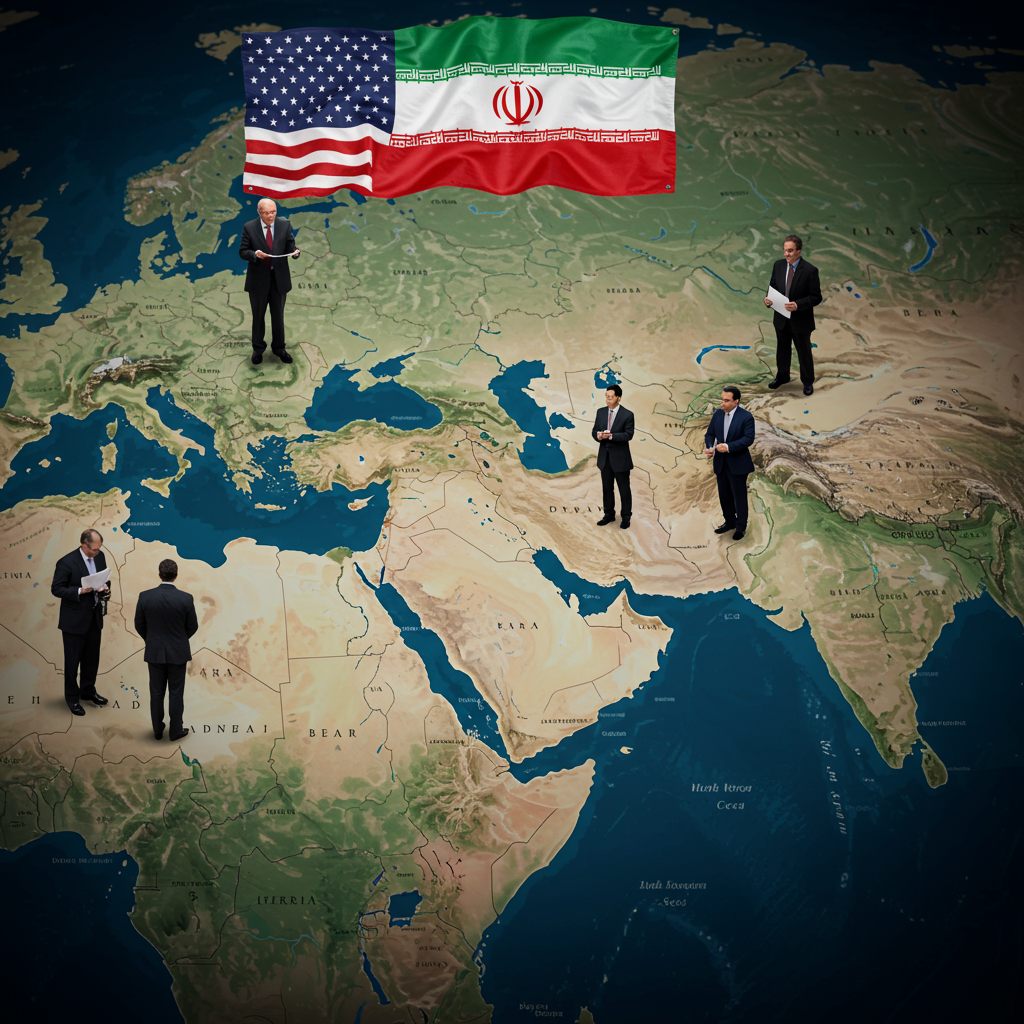As military tensions escalate in the Middle East, marked by recent U.S. strikes on Iranian nuclear sites and subsequent regional reactions, China is closely monitoring the volatile situation. While instability carries potential risks for Beijing, particularly concerning economic interests, the unfolding crisis also presents significant strategic and diplomatic opportunities that could benefit China’s long-term geopolitical ambitions.
The United States’ bombing of key Iranian nuclear facilities triggered a rapid escalation in the region, drawing sharp criticism from Beijing. China’s Foreign Ministry quickly condemned the U.S. action as a serious violation of the United Nations Charter, emphasizing that the use of force between countries is largely prohibited except in self-defense or with Security Council approval. China stated its readiness to work with the international community to restore peace and stability in the Middle East, positioning itself as a responsible global player amidst the turmoil. China’s UN Ambassador echoed this sentiment, suggesting U.S. credibility had been damaged internationally.
Economic Risks Amidst Geopolitical Winds
Despite the potential for strategic gains, China faces tangible economic vulnerabilities in the escalating conflict. A primary concern is the potential closure of the Strait of Hormuz by Iran. This narrow waterway is a critical chokepoint for global oil transport, and its disruption would cause significant volatility in world energy markets.
As Iran’s largest trading partner and a major importer of Middle Eastern oil, China is highly exposed to potential price shocks and supply chain disruptions. Higher oil and gas prices would undoubtedly put pressure on China’s economy, potentially worsening inflation. While China’s dependence is on overall Middle East supply rather than exclusively Iran, the Strait’s vulnerability remains a major risk.
Furthermore, Iran is a notable partner in China’s ambitious Belt and Road Initiative (BRI). Instability resulting from military intervention could weaken Iran, making it a less effective partner for China’s extensive infrastructure and trade projects across the region. Beijing has a clear incentive to see tensions de-escalate to protect these economic ties, though its ability to fully restrain Iran is limited.
Seizing Diplomatic Leverage
The U.S. military action provides China with a significant opportunity to bolster its diplomatic standing, particularly by contrasting its approach with that of the United States. China consistently portrays itself as a force for peace and stability globally, while framing the U.S. as a disruptive and destabilizing actor. The strikes offer potent new material for this narrative, which Beijing actively promotes, especially in the Global South.
This focus on rhetorical support for de-escalation and criticism of U.S. actions appears to be China’s primary stance, rather than offering material military aid to Iran. Experts note this aligns with China’s policy of non-interference and reluctance to become entangled in foreign military conflicts, even with partners. While China successfully brokered the normalization of relations between Saudi Arabia and Iran in 2023, its capacity to mediate the current crisis is constrained, particularly as Israel has shown little interest in Chinese intervention. Nevertheless, maintaining a public posture as an advocate for diplomacy earns China diplomatic goodwill and enhances its image as a counterweight to Western influence.
A Strategic Pivot Away from Asia?
Perhaps the most significant potential gain for China is the prospect of the United States becoming increasingly preoccupied with the Middle East, potentially diverting attention and resources away from the Indo-Pacific region.
A prolonged U.S. entanglement could alleviate the pressure China currently faces regarding its growing military presence and assertiveness in Asia. Evidence of this potential shift emerged when a U.S. aircraft carrier, initially scheduled for a port visit in Vietnam intended to signal U.S. commitment to Asian security, was rerouted to the Middle East due to operational requirements.
If the U.S. remains heavily focused on the Middle East, Beijing may “recalculate” its strategic approach, potentially influencing its posture towards Taiwan, the self-ruled island China claims as its own. Furthermore, U.S. allies in the Indo-Pacific, such as Japan, South Korea, the Philippines, and Australia, might be compelled to increase their own defense capabilities and strengthen regional cooperation if they perceive a sustained shift in U.S. priorities. Some analysts suggest that Beijing, alongside Moscow, might be content with a contained Middle East conflict precisely because it distracts the U.S. from strategic competition elsewhere.
The absence of direct military support for Iran from powers like China or Russia also highlights a key limitation for Tehran, potentially influencing the scope of its retaliation options. This lack of major power backing might even have factored into Washington’s strategic calculations when deciding to strike.
Ultimately, it remains unclear whether the U.S. strikes represent an isolated incident or signal a broader, long-term reorientation of U.S. foreign policy priorities towards the Middle East. However, for China, the crisis presents a complex calculus of economic risk versus significant strategic and diplomatic opportunities on the global stage.




